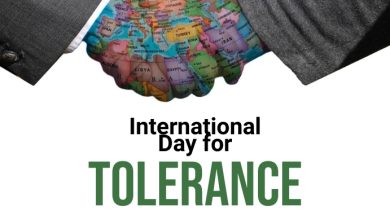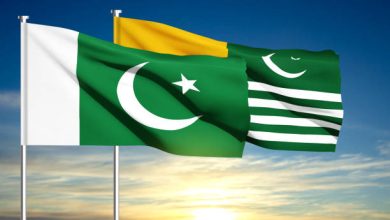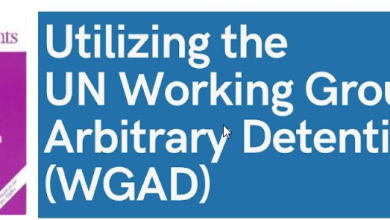
The self-determination of peoples is a basic principle of the United Nation Charter which has been reaffirmed in the Universal Declaration of Human Rights and applied countless times to the settlement of international disputes. The concept played a significant part in the post-world war I settlement, leading for example to plebiscite in a number of disputed border areas, even though no reference was made to self-determination in the League of Nations Covenant. After the Second World War, the concept began to acquire much greater importance. In 1945 the establishment of the UN gave a new dimension to the principle of self-determination. Self-determination was made one of the objectives and principles for which the UN was established in the first place. Article 1.2 of the Charter of the United Nations as one of the purposes of the UN reads: “To develop friendly relations among nations based on respect for the principle of equal rights and self-determination of peoples.”
In the 1950s and 1960’s the right of self-determination was seen almost exclusively as part of the process of decolonization. Resolution 1514 (XV) of 14 December 1960 is entitled: Declaration on the Granting of Independence to Colonial Countries and Peoples.” It includes the following statement of principle: “All peoples have the right to self-determination; by virtue of that right they freely determine political status and freely pursue their economic, social and cultural development.”
International Court of Justice considered the several resolutions on decolonization process and noted: “The subsequent development of International Law in regard to non-self-governing territories as enshrined in the Charter of the UN made the principle of self-determination applicable to all of them.” This opinion establishes self-determination as the basic principle for the process of decolonization.
Dr. Karen Parker, internationally known humanitarian Lawyer and Chairperson, Association of Humanitarian Lawyers wrote that “The United Nations established a mandate for decolonization in the Charter itself, especially in Article 1.2 that provides for respect for the principle of self-determination. The principle of self-determination arises in the decolonization process because in a colonial regime the people of the area are not in control of their own governance. In these situations, there is another, illegitimate sovereign exercising control. De-colonization, then, can be viewed as a remedy to address the legal need to remove that illegitimate power. As a result of the decolonization mandate, two types of situations emerged: situations I call “perfect de-colonization” and those that I call “imperfect de-colonization”. The situation in Kashmir is an “imperfect de-colonization” because the Kashmiri people did not achieve full sovereignty and were unable legally to express their wishes regarding sovereignty.”
From 1952 onwards, the General Assembly of the UN adopted a series of resolutions proclaiming the right to self-determination. The two most important of these are resolution 1514 (XV) of 14 December 1960 and resolution 2625 (XXV) of 24 October 1970.
The resolution 2625 of 1970, adopted a document entitled “Declaration on Principles of International Law Concerning Friendly Relations and Co-Cooperation among States.” In a section entitled “The principle of equal rights and self-determination of peoples”, the declaration states: “By virtue of the principle of equal rights and self-determination of peoples enshrined in the Charter of the United Nations, all peoples have the right freely to determine, without external interference, their political status and to pursue their economic, social and cultural development, and every State has the duty to respect this right in accordance with the provisions of the Charter.”
In 1966, the General Assembly of the United Nations adopted the International Covenants of Civil and Political Rights (the ICCPR) and on Economic, Social and Cultural Rights (the ICESCR). Article 1 of each of the Covenant’s states:
“1.1. All peoples have the right to self-determination. By virtue of that right they freely determine their political status and freely pursue their economic, social and cultural development….
“1.3 The States Parties to the Present Covenant, including those having responsibility for the administration of non-self-governing and Trust Territories, shall promote the realization of their right of self-determination, and shall respect that right, in conformity with the provisions of the Charter of the United Nations.”
The Covenants came into force in 1976. They take effect as treaties and (unlike resolutions of the General Assembly) are binding, in international law on the ratifying States, subject to any reservations at the time of ratification. India ratified both Covenants on 10 April 1979. Pakistan ratified on June 23, 2010.
The Vienna Declaration, adopted by the UN World conference on Human Rights on 25 June 1993, repeated Article 1.1. of the Covenants and continued: “Taking into account the particular situation of peoples under colonial or other form of alien domination or foreign occupation, the World Conference on Human Rights recognizes the right of peoples to take any legitimate action, in accordance with the Charter of the UN, to realize their inalienable right to self-determination. The World conference on Human Rights considers the denial of the right of self-determination as a violation of human rights and underlines the importance of the effective realization of this right.”
Article 20 (1) of the African Charter on Human rights and Peoples Rights, also known as Banjul Charter (October 21, 1986) reads: “All people shall have the right to existence, they shall have unquestionably and unalienable right to determination. They shall freely determine their political status and shall pursue their economic and social development according to the policy they have freely chosen.”
The Helsinki Final Act of the Conference on Security and Cooperation in Europe (1975), confirms the right to self-determination of the people.
The Atlantic Charter of 14 August 1941, which was issued by the British Prime Minister Churchill and the US President Roosevelt, affirmed the right of all people or peoples to choose their own form of Government. They further added that they wished to see the sovereign rights restored to those who had been forcibly deprived of them.
The concept seems to be as old as Government itself and was the basis of French and American revolutions. In 1916, President Wilson stated that self-determination is not a mere phrase. He said that it is an imperative principle of action and included it in the famous 14-point charter. This gave a prominence to the principle. Self-determination as conceived by President Wilson was an imprecise amalgamation of several strands of thought, some long associated in his mind with the notion of “self-determination,” others hatched as a result or wartime developments, but all imbued with a general spirit of democracy.
(To be continued)
(Dr Fai is also, Secretary General of World Kashmir Awareness Forum)








